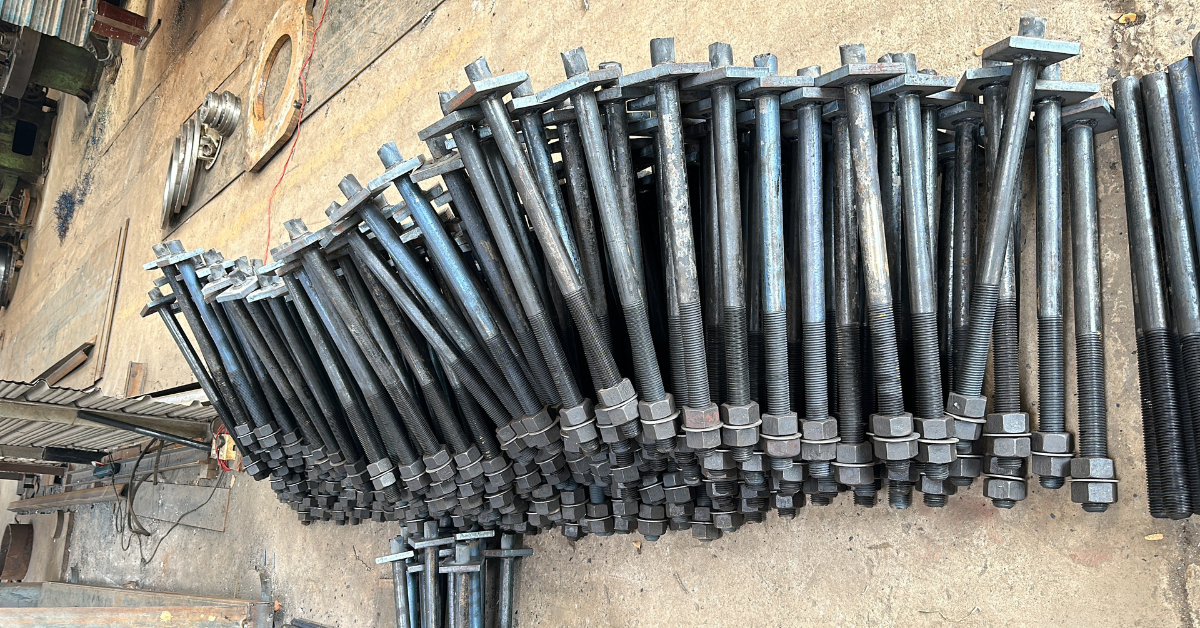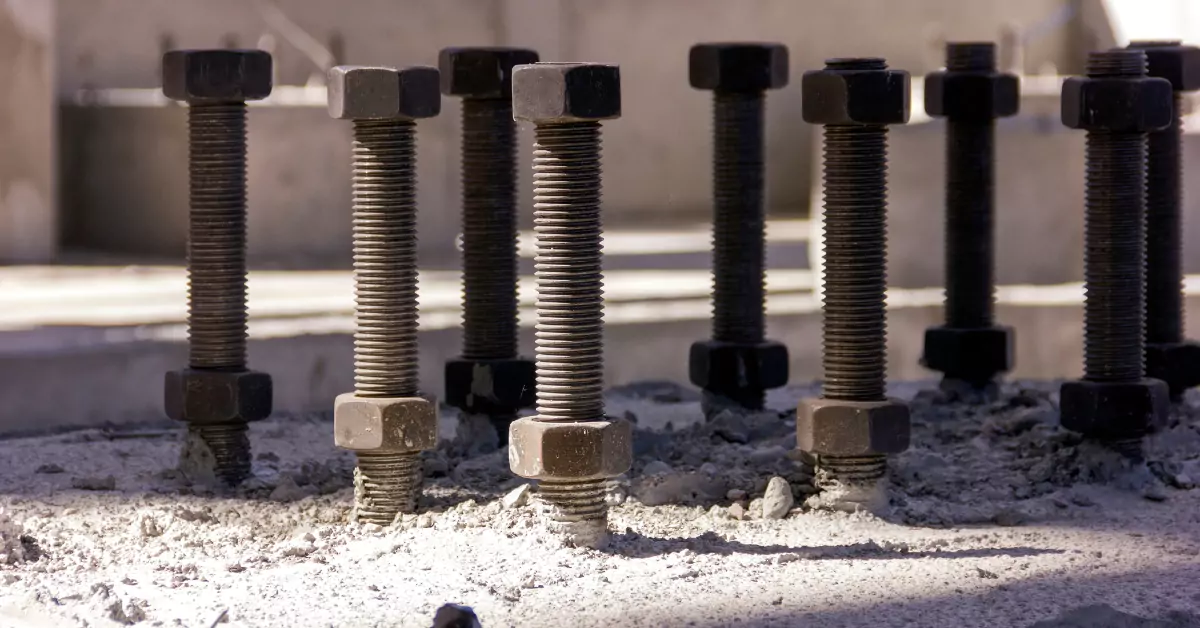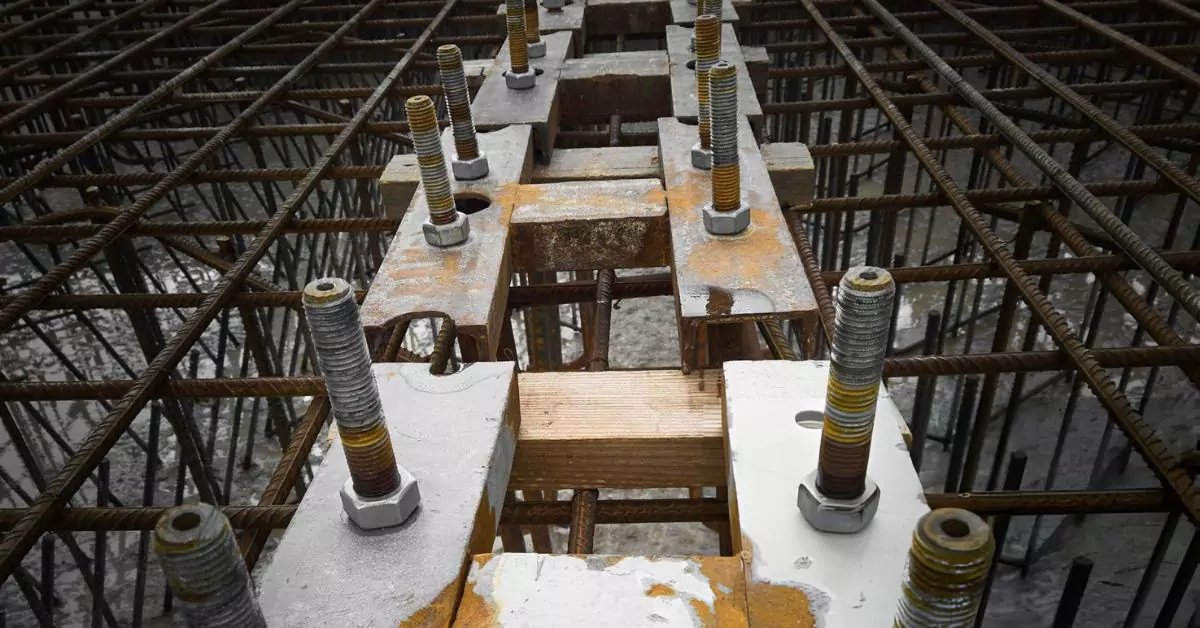How to Choose the Right Foundation Bolt for Your Project
Foundation bolts might not be the most glamorous part of construction, but they’re absolutely critical to structural integrity. These heavy-duty fasteners anchor structural elements to concrete foundations, creating the vital connection between your building’s frame and its base. Choose the wrong bolt, and you could face costly repairs, structural failures, or safety hazards down the line.
Getting foundation bolt selection right requires understanding your project’s specific requirements, environmental conditions, and load demands. This guide will walk you through the key considerations to help you make an informed decision that keeps your structure secure for years to come.
Types of Foundation Bolts
Foundation bolts come in several configurations, each designed for specific applications and installation methods.
- J-Bolts: J-bolts feature a distinctive J-shaped hook at one end that anchors into concrete. They’re among the most common foundation bolts due to their simple design and reliable holding power. The hooked end prevents the bolt from pulling out under tension, making them ideal for securing column bases, equipment pedestals, and structural frames.
- L-Bolts: L-bolts have a 90-degree bend at the embedded end, creating an L-shaped anchor. They provide excellent pullout resistance and are particularly useful when you need precise positioning or when working with thinner concrete sections where a J-bolt’s curved hook might not fit properly.
- Straight Bolts with Plates: These bolts feature a straight shaft with a plate welded to the embedded end. The plate distributes loads across a larger concrete area, making them suitable for high-load applications or when working with lower-strength concrete.
- Anchor Bolts: Anchor bolts encompass various threaded fasteners designed to secure structural elements to concrete. They can be cast-in-place during concrete pouring or installed post-construction using chemical or mechanical anchoring systems.
Key Factors to Consider
Load Requirements: Understanding the loads your foundation bolts must handle is crucial for proper selection. Consider both static loads (permanent weight) and dynamic loads (wind, seismic activity, vibration).
Calculate the tension, shear, and compression forces the bolts will experience. Factor in safety margins and any applicable building codes or standards. Higher loads typically require larger diameter bolts, stronger materials, Foundation Bolt Weight Calculator or additional anchoring features.
Environmental Conditions: Environmental factors significantly impact bolt performance and longevity. Exposure to moisture, chemicals, temperature extremes, or corrosive substances can degrade bolt materials over time.
For outdoor applications or harsh environments, consider galvanised bolts or stainless steel options. Hot-dip galvanising provides excellent corrosion protection for carbon steel bolts, while stainless steel offers superior resistance to chemical attack and extreme temperatures.
Material Selection: Carbon steel remains the most common foundation bolt material due to its strength, availability, and cost-effectiveness. However, material selection should align with your project’s specific requirements.
High-strength steel grades offer greater load capacity in smaller diameters, which can be beneficial for space-constrained applications. Stainless steel provides excellent corrosion resistance but comes at a higher cost. Always verify that your chosen material meets relevant standards and specifications.
Bolt Diameter and Length: Bolt diameter directly affects load capacity, with larger diameters handling greater forces. However, bigger isn’t always better – oversized bolts can create installation challenges and unnecessary costs.
Length requirements depend on your concrete thickness, embedment depth requirements, and the thickness of mounted equipment or structural elements. Ensure adequate thread engagement while allowing for proper concrete cover.
Installation Best Practices
Proper installation is just as important as selecting the right bolt. Poor installation can compromise even the best-quality fasteners.
- Pre-Installation Planning: Mark bolt locations accurately using templates or precise measurements. Verify that bolt positions align with the mounting holes in your structural elements. Double-check embedment depths and ensure adequate concrete cover on all sides.
- Concrete Placement: When casting bolts in place, secure them properly to prevent movement during concrete pouring. Use appropriate supports and bracing to maintain position and alignment. Protect bolt threads from concrete contamination using thread protectors or tape.
- Post-Installation Verification: After concrete curing, verify bolt positions and thread condition. Clean any concrete residue from threads and apply appropriate thread compounds or sealants as specified. Torque bolts to the required specification using calibrated equipment.
Making the Right Choice for Your Project
Selecting foundation bolts requires balancing multiple factors including load requirements, environmental conditions, material properties, and installation constraints. When in doubt, consult with structural engineers or fastener specialists who can provide project-specific guidance.
Remember that foundation bolts are a long-term investment in your structure’s integrity. Choosing quality fasteners from reputable suppliers like E S HAJI & CO. ensures you get reliable products backed by proper technical support and quality assurance.
Take time to thoroughly assess your project requirements, consider future maintenance needs, and select bolts that provide adequate safety margins for your specific application. The extra effort invested in proper selection will pay dividends in structural reliability and peace of mind.
Foundation Bolt

Learn how to select foundation bolts based on load requirements, environmental conditions, and material properties. Expert guidance for construction projects. Choosing the right foundation bolt is critical for ensuring structural integrity and project success. Consider load needs, environmental factors, and material properties. This guide provides expert advice to help you make informed decisions, enhancing safety and durability in construction projects.
Product Brand: E S HAJI And CO
Product Currency: INR
Product In-Stock: InStock
5



